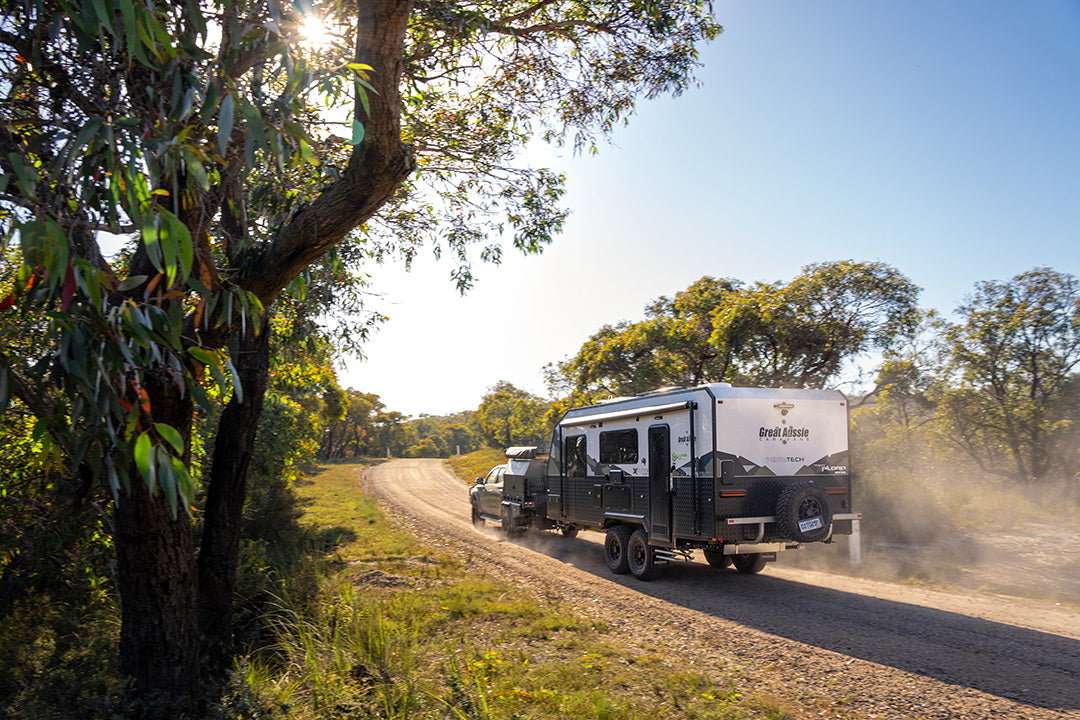Camping bliss at Kangarutha Farm, New South Wales
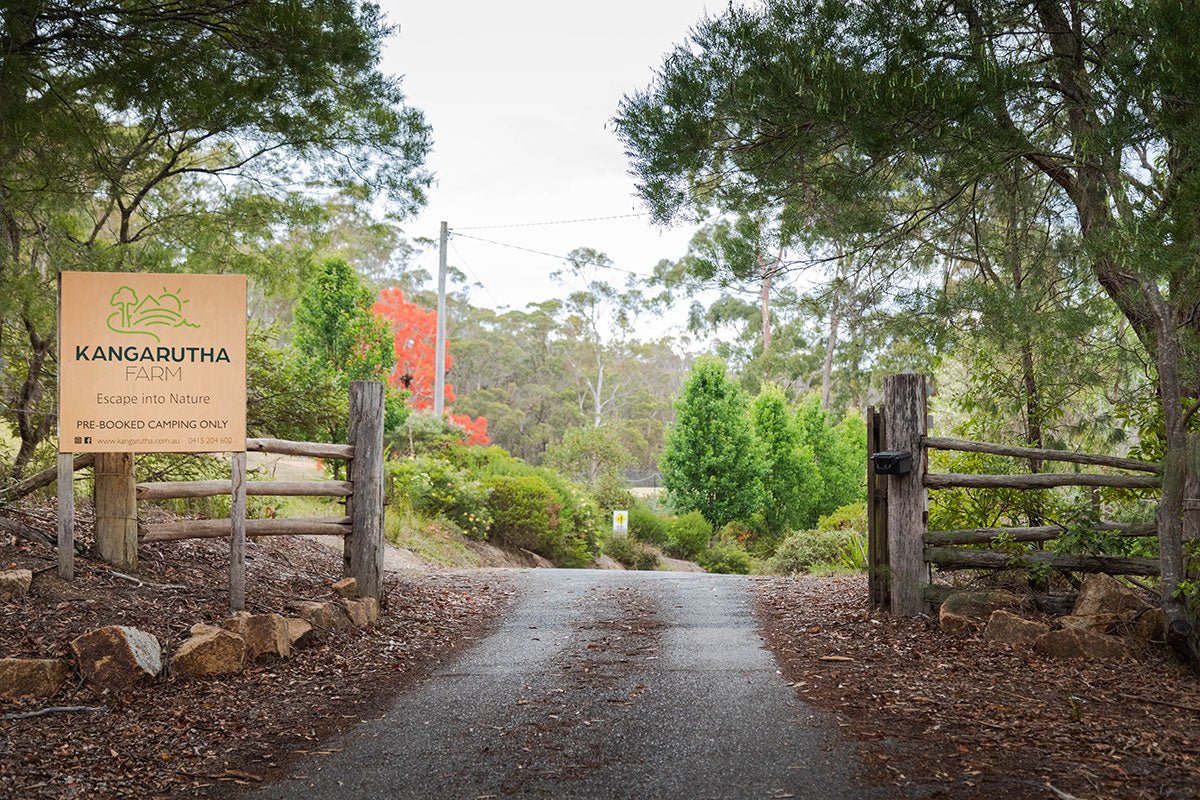
Located a short drive from Tathra on the NSW Sapphire Coast, and nestled against the beautiful Bournda National Park, Kangarutha Farm offers guests a quiet, secluded campground with all the benefits of holidaying by the coast and much more.
We were lucky enough to spend the better part of four days on the property (albeit no nights), which was the day base camp for our judges, photographers and videographers throughout Australia’s Best Hybrids 2024. And, while I was there, I couldn’t miss the opportunity to take a walk around the property with owners, Tom and Lisa Hamilton.
The history
Sprawling across 240 acres, Kangarutha Farm is full of history, beautiful metal sculptures and plenty of nature. The land has been owned and expanded on by Tom’s family since the 1960s, when it was run as a cattle stud by Tom’s grandfather. Its next iteration, and one that many locals remember fondly, was as an Australian native plant nursery ran by Tom’s parents, Chris and Bruce. In 2015, this section of the property was rented out to a local company which established On the Perch Bird Park.
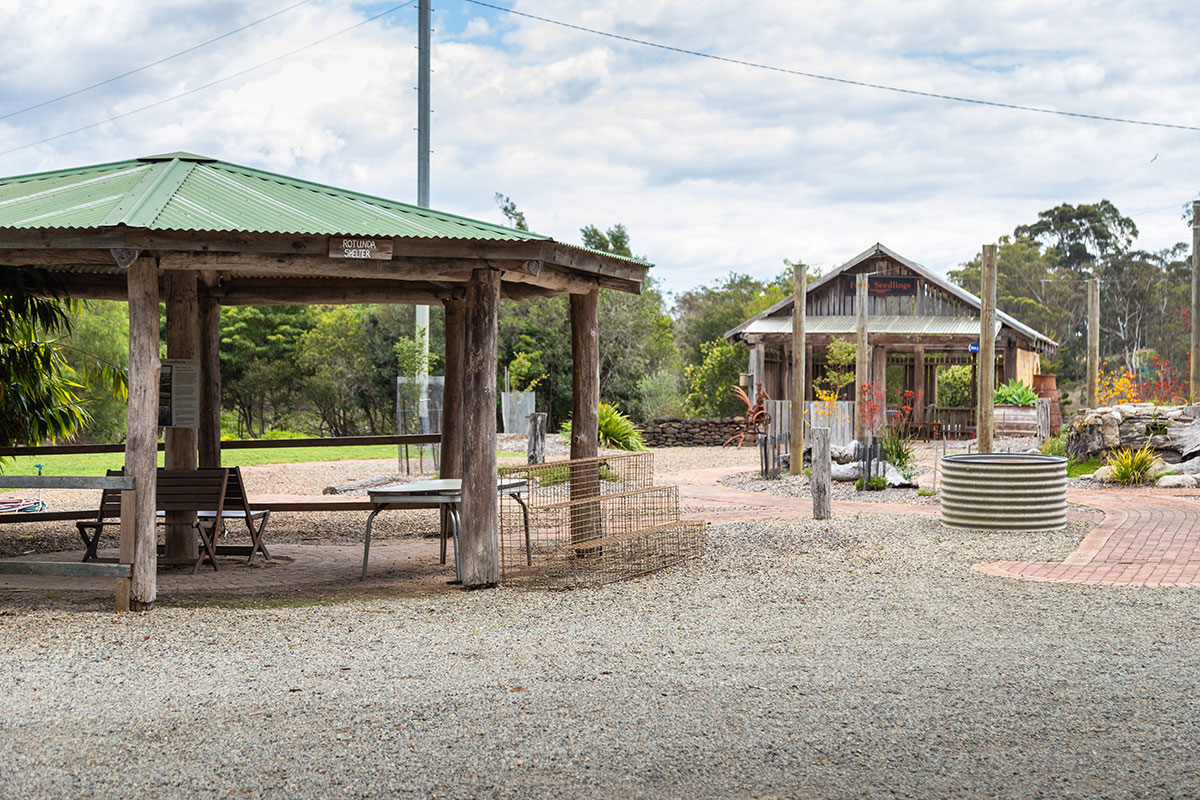
Tom and Lisa returned to the property at the end of 2017, and three years later took on the welcome challenge of transforming the property Tom had grown up on, into a campground. “There was so much infrastructure here, it had to be used,” Tom said.
“It’s been quite an organic process, the way we’ve been growing the business,” Tom explained. They began with one site, which grew to add two bush camp sites and then other paddock camps. “We still have ideas of having accommodation on site, which would be more central to the events space we’re developing. But we have other jobs as well, and it does take time to develop it.”
Guests can explore the 115 acres of the property that have been dedicated to the campsites, facilities and walking trails, while the remainder of the property is kept as bushland and the family’s private residences.
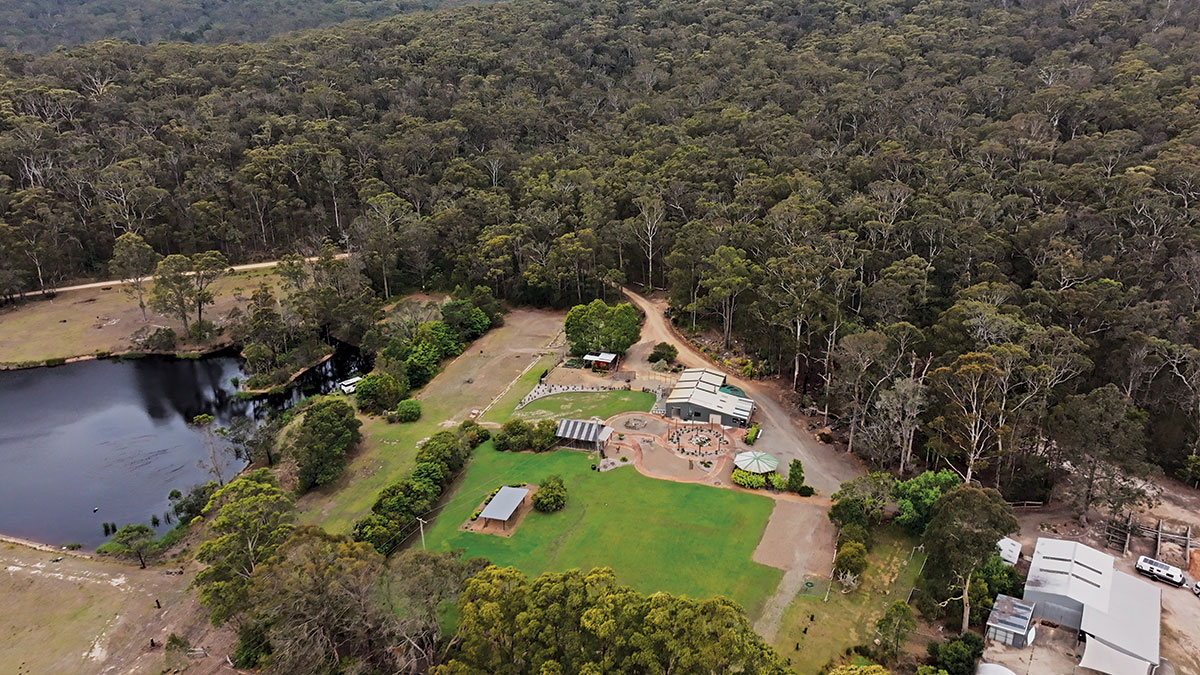
Camping
There are four main campsites open year-round, and another four which are open during the holiday periods. While this may not sound like many, Tom and Lisa explained they prefer to keep the number down to maintain the secluded, peaceful atmosphere that is at the heart of the Kangarutha experience.
As the sign on the front gate will attest, bookings are required for all guests, and these can be made online or by phone. The sites range from a maximum of eight people to 16 per site, and multiple sites can be booked at once if you’re planning on travelling with a larger group. Stays are a minimum of two nights and a maximum of three weeks, so if you’re hoping to visit in the school holidays or on long weekends it’s best to book early to secure your spot.
All sites are suitable for camping with tents, campervans and smaller caravans. The paddock camps are more suitable for larger caravans. If needed in the event of very wet weather, campers and caravans can be accommodated in alternative areas on the property.
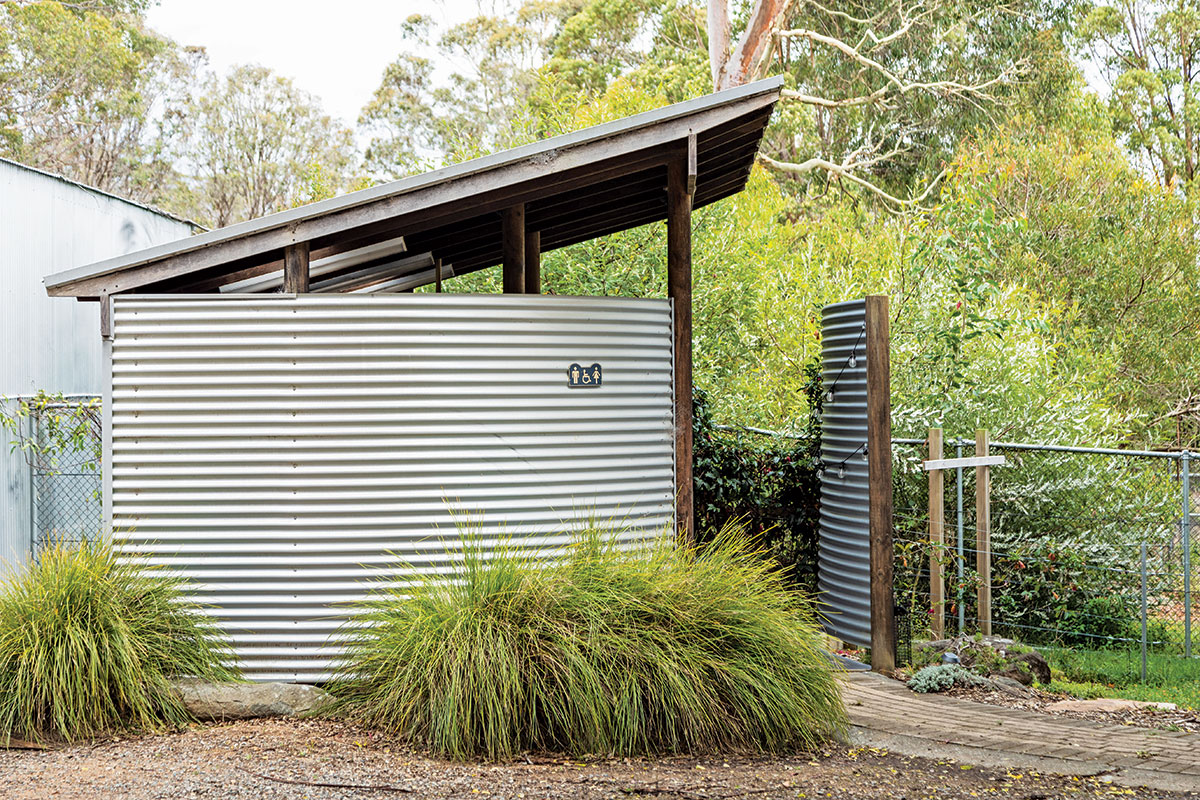
There are basic facilities located in the central communal area, including three toilets, one shower (with plans to expand) and a small indoor space with a sink and space to meal prep. There are no cooking facilities provided, but what better reason to pull out the barbie or dust off your campfire recipes (when open fires are permitted, of course).
The acres dedicated to the camping areas are well maintained, with a number of scenic dams perfect for picnicking, and firepits set up at the campsites and some of the communal areas ready for guests to sit back and enjoy the serenity.
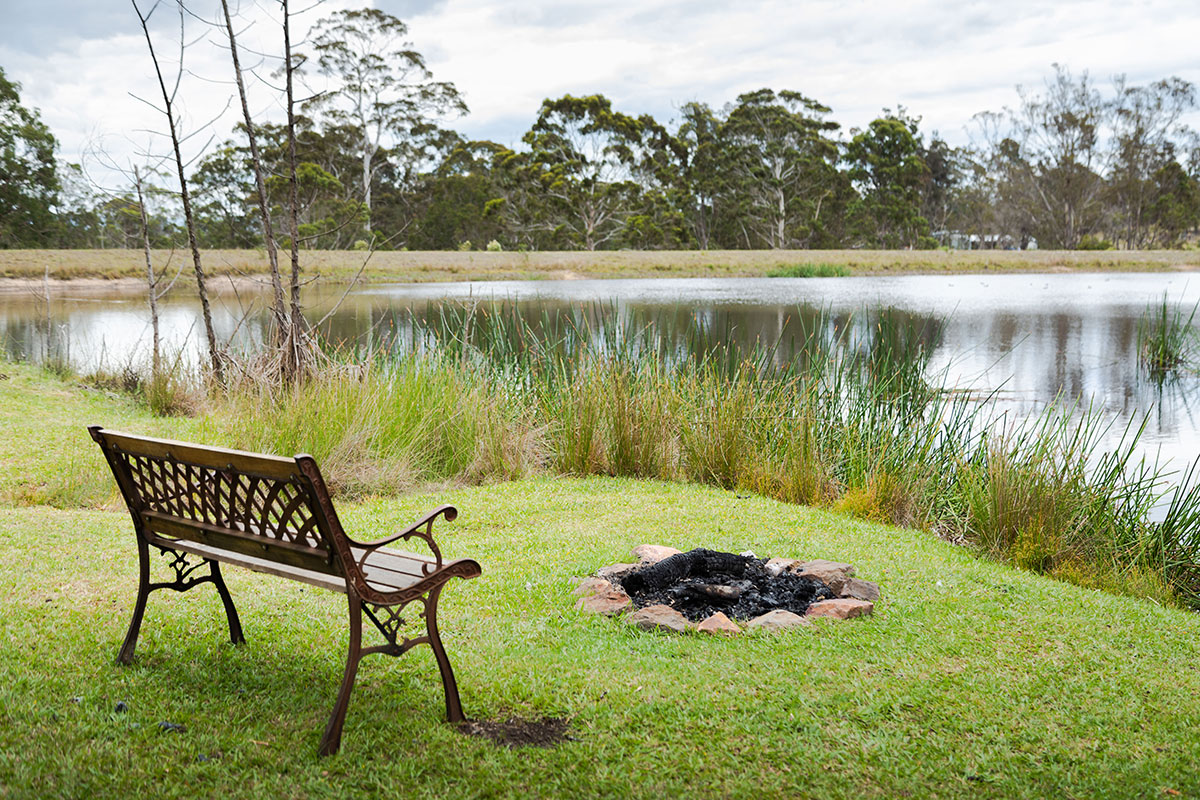
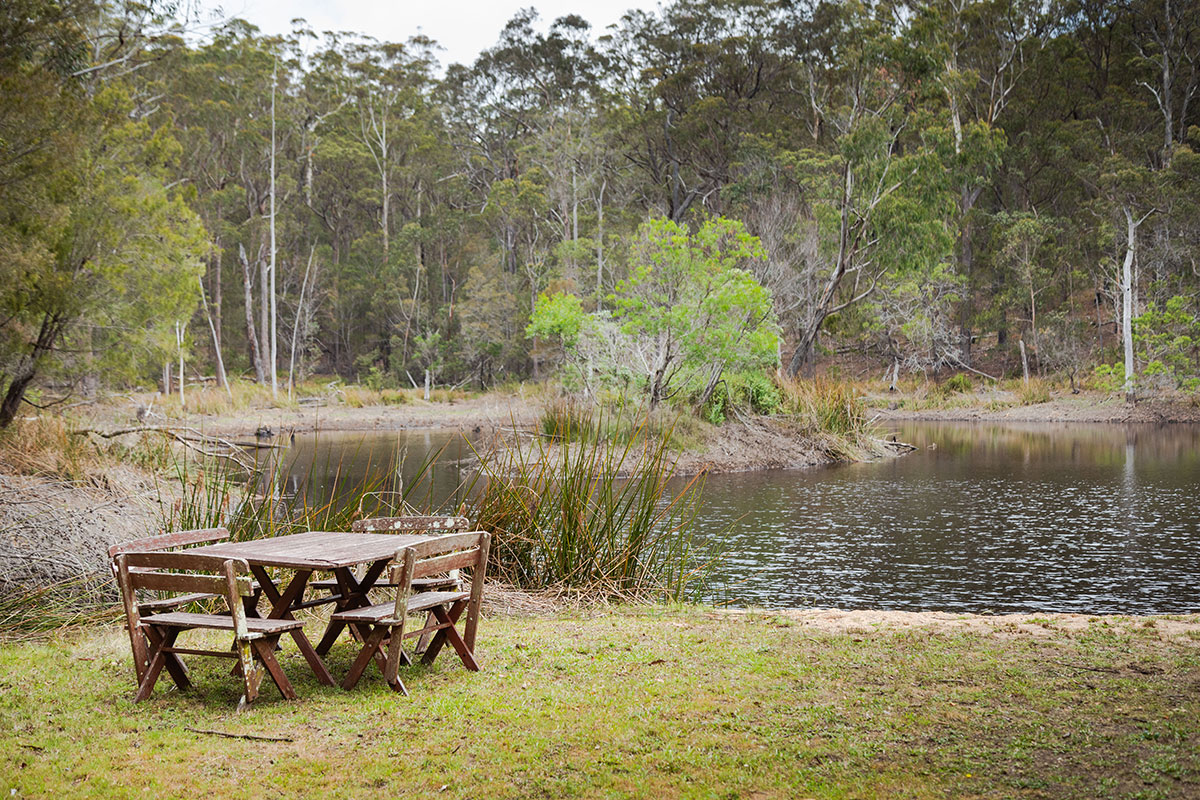
What to do
Offering simple campsites surrounded by nature, Kangarutha Farm is the ideal spot to set up your base camp and spend days exploring the property and surrounding region, whether that’s by foot, bike or car.
Not only is the property a short drive from many of the Sapphire Coast’s beautiful coastal towns, including Tathra and Merimbula, but guests can also easily access the coast via the walking tracks that start at the back of the property and head through Bournda National Park to the ocean.
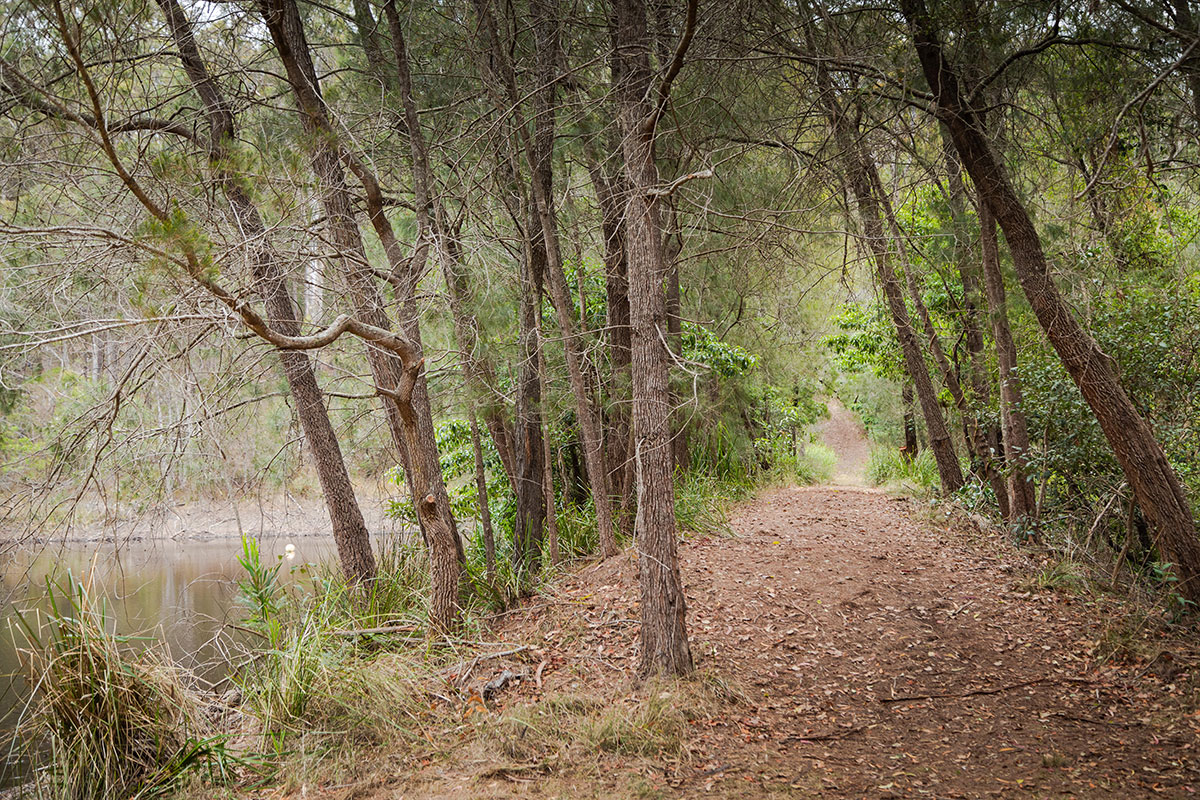
“It’s about a 40-minute walk to get to the coast from where we are,” Lisa explained, pointing out one of the main walking tracks that begins only a short walk from the two bush campsites. This main track follows the powerline and leads to Boulder Bay, a secluded rocky bay offering a nice spot for a swim or snorkel. There's a range of other options for longer walks including along the Kangarutha Track which traverses the coastline for 9km from Tathra to Bournda Beach.
“It’s nice to set up camp and go out for a day excursion without getting in the car,” Tom said. “We’re really fortunate to have the new bike path from Tathra to Kalaru as well, which is right at the entrance to the property. It’s about 3.5km to Tathra Headland or the beach, and there’s a lot to explore in this immediate area. To the north there’s Mimosa Rocks National Park, Nelson’s Lagoon, Bithry Inlet and Middle Beach, which are lovely spots. And then south we’ve got Bournda National Park, Wallagoot Lake and Turingal Head.” And when it comes to beaches Tom recommends Tathra Beach and the north end of Bournda Beach while Bithry Inlet, Nelson Lagoon and Bournda Lagoon are ideal spots to enjoy swimming and kayaking.
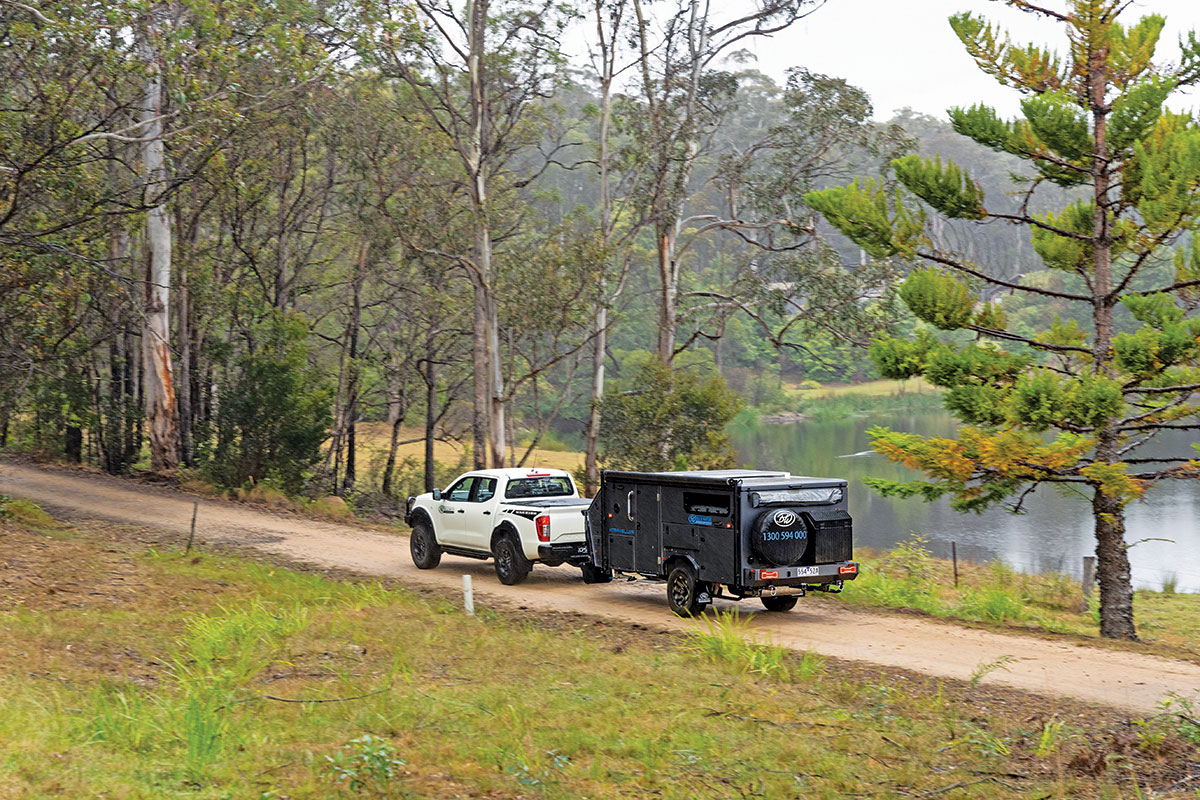
Tom and Lisa have contacts with a number of businesses that run tours, including Navigate Expeditions which offers walking, biking and kayaking tours in the area, as well as multi-day bike hire, and Sapphire Coast Guiding Co which offers a variety of guided walking and kayaking tours throughout the Sapphire Coast. For one day bike hire or less Tom recommends Tathra Beach and Bike.
Looking to the future
The beauty of Kangarutha is the natural tranquillity it offers visitors, and while Tom and Lisa have plans to grow and evolve the business organically, they are happy with the number of camping sites they currently have.
“It’s an interesting situation with the property,” Lisa said. “We want to develop it obviously, but it’s also our home. So, we’re doing it so that the business works in with our lifestyle. We don’t want to have to clear more space to make camping sites. People value the smaller nature of the camping.”
One major project Tom and Lisa are currently undertaking is transforming the area that was once the nursery garden centre into an event space for weddings, large gatherings and other events on select weekends of the year, with the plan to be functional in mid-late 2024. Once completed, the event space will include a commercial kitchen, indoor and outdoor seating and fantastic views of the nearby scenic dam and sunsets.
Tom and Lisa are also turning what was once their main family residence on the property into accommodation that will be available all year round.
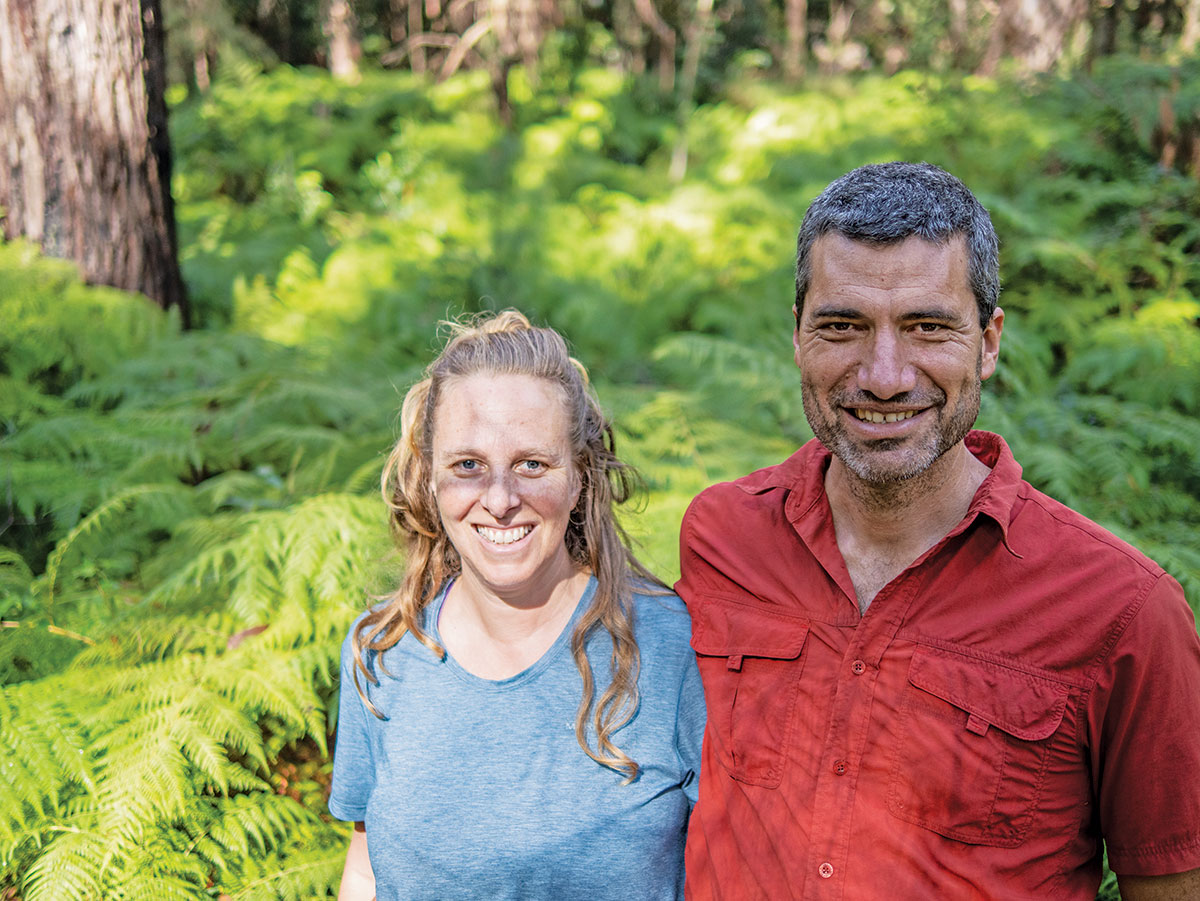
Many locals fondly remember visiting the property when it was a nursery, and with assistance from Tom’s mother, Chris, who ran the original nursery, Tom and Lisa are bringing the nursery back on a smaller scale and have been running a native plant sale twice a year with great success. In addition, Tom and Lisa are establishing fruit orchards and growing vegetables, with the plan to allow visitors and locals to purchase the produce. “We’re an ecotourism business, but also an agritourism business,” Tom explained.
After a day of adventures, there’s nothing better than heading back to a quiet, peaceful campsite — and that’s exactly what Kangarutha Farm offers. A large part of the beauty of the property is the echoes of how it has transformed from generation to generation, and with Tom and Lisa’s new expansions in the works and acres of nature to explore, there’s a lot to entice visitors and locals alike.
THE NEXT STEP
If you need help choosing your first caravan or are considering upgrading your existing one, check out the caravans available on TradeRVs today.
The sellers will be happy to help and answer any inquiries you may have about the products advertised for sale.






